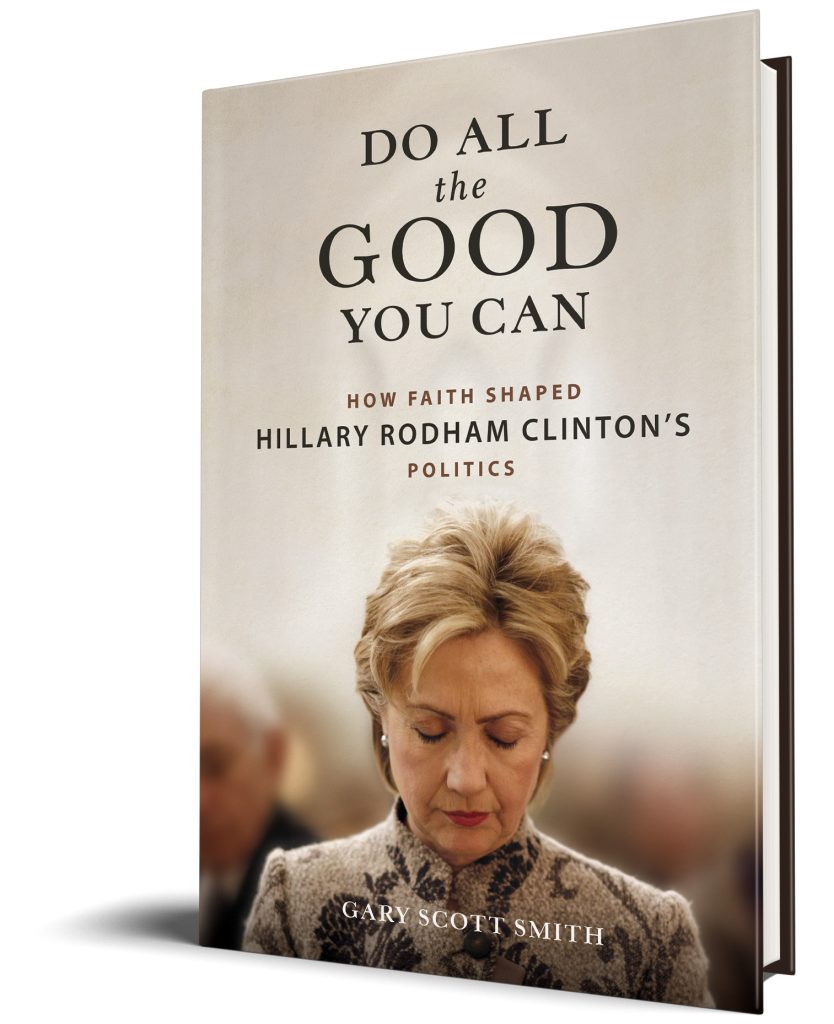Gary Scott Smith, author of Do All the Good You Can: How Faith Shaped Hillary Rodham Clinton’s Politics, answers questions on his new book.
Q: Why did you decide to write this book?
I wrote this book because Hillary Clinton’s faith has been both underappreciated and misconstrued. I explain why Clinton’s faith was very important in both her personal and professional life. She reports that her Methodist faith has “been a huge part of who I am and how I have seen the world, and what I believe in, and what I have tried to do in my life.” I argue that Clinton’s life, policies, and political activities can be properly understood only in light of her personal faith, which is rooted in her Methodist upbringing and involvement in Methodist congregations, reading of Christian literature, participation in prayer groups, and relationships with other Christians throughout her life. Her faith has helped motivate many of her activities including Clinton’s pro bono activities as a Yale Law School student, endeavors to improve public education in Arkansas, efforts as first lady to reform health care, and quest to end the mistreatment of and provide full human rights for children and women.
Q: What is the most interesting discovery you made while researching and writing your book?
My most interesting discovery is that Hillary Clinton was powerfully inspired throughout her life by her commitment to fulfilling a dictum usually attributed to John Wesley, the founder of Methodism: “Do all the good you can, by all the means you can, in all the ways you can, in all the places you can, at all the times you can, to all the people you can, as long as ever you can.” This philosophy motivated many of her actions as a law student, agent and board member of the Children’s Education Fund, first lady of Arkansas and the United States, US Senator, secretary of state, and presidential candidate as she promoted a wide variety of humanitarian causes, most notably assisting and empowering women and children.
Q: Which part of the publishing process did you find the most interesting?
I enjoy all aspects of the research, writing, and publishing process except compiling an index. Learning about a person’s life and accomplishments, placing individuals in an illuminating historical context, interacting with the work of other scholars, formulating a thematic thread to tie all the aspects of a book together, organizing the material into a coherent narrative, and revising and refining my prose are all enjoyable.
Q: What is your advice to scholars/authors who want to take on a similar project?
Pick a topic that deeply interests you. Then read widely in this field, carefully analyze the often competing perspectives on your subject, work to determine what other scholars have ignored, misunderstood, or not clearly explained, and solicit feedback from experts on your subject.
Q: What do you like to read/watch/or listen to for fun?
I enjoy reading and listening to books about historical topics, prominent individuals, sports, religious and theological issues as well as mysteries. I watch numerous sporting events and mysteries on television. As my publishing record indicates, I have quite eclectic tastes. I have written about the faith of US presidents, how Americans have viewed heaven, Christianity in Pittsburgh, children and poverty, Winston Churchill, Mark Twain, and Jackie Robinson, among other topics.

Gary Scott Smith is a professor of history emeritus at Grove City College. His many books include Strength of the Fight: The Life and Faith of Jackie Robinson and Duty and Destiny: The Life and Faith of Winston Churchill.

